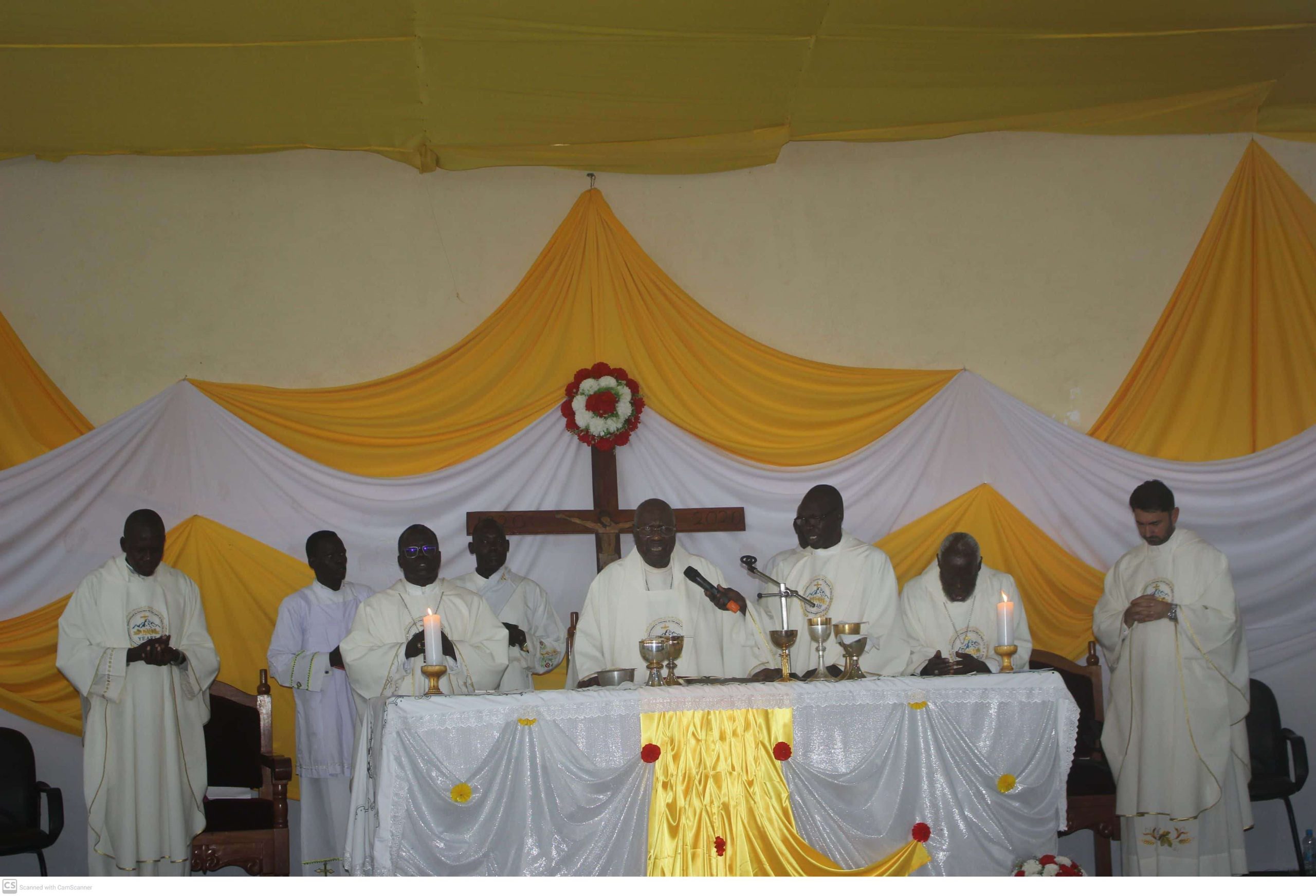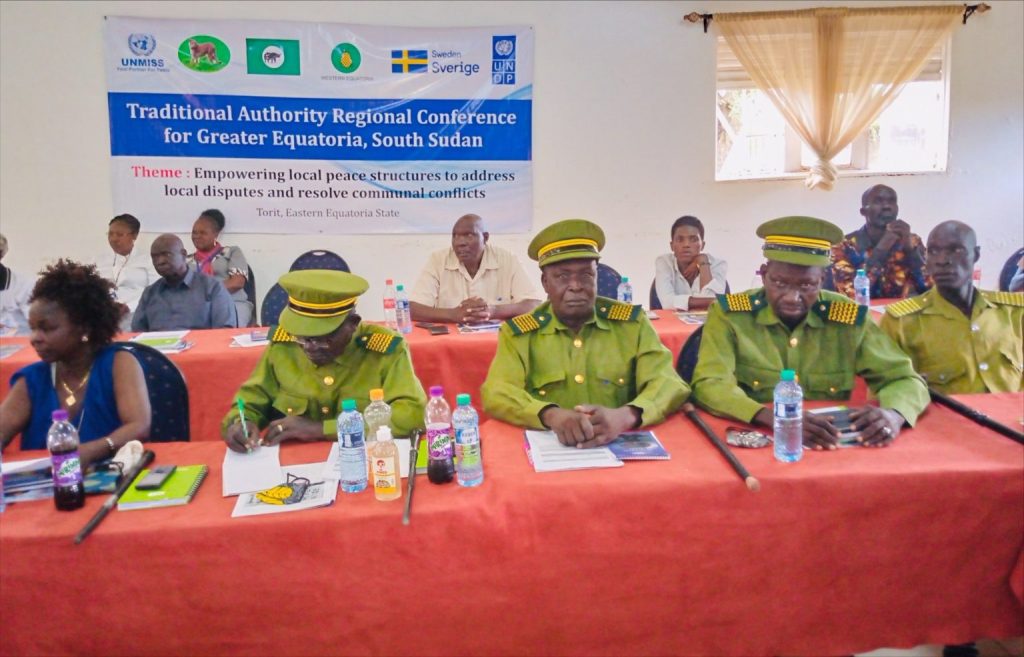Local leaders gathered in Eastern Equatoria state capital Torit for a two-day regional conference for Greater Equatoria.
The traditional authority regional conference was organized by UN Mission in South Sudan. It’s a conference that hopes to empower local peace structures to address local disputes and resolve communal conflicts.
The two days gathering brought together representatives from three states of Western, Central, and Eastern Equatoria State respectively.
UNMISS’s Civil Affairs team leader for Torit Field Office, Tahir Cevik says the forum aims to resolve the challenges faced by traditional leaders in
an effort to provide effective service delivery.
“The objective of this conference is to bring you from the state, regional and national levels to see what challenges you are facing so that we as mission and partners can be able to offer help so that you can play your role at grassroots levels to address some of these conflicts before they spire to communal violence,” he said.
UNMISS pledged to organize a major conference in Juba to allow participants from other regions in the country.
“That will be our final act (conference) then we will send you home to help us achieve a peaceful home,” Cevik added.
The Executive Director of the Community Empower and Progress Organization (CEPO) Mr. Edmund Yakani called the chiefs to use the appropriate ways of handling land-related conflicts for an amicable solution.
He also challenged the chiefs for introducing a new system of land ownership which was not specified in the South Sudan Land Act.
“I know some of you have established your revenue authority in your way by demarcating what is called a token. This token has undermined the legal framework of land governance,” Yakani said.
He criticized the traditional leaders for distributing tokens to earn money and called for an end to such practices.
The Minister of Local government in Central Equatoria State, Hon. Moro Isaac Jenesio, says it is illegal for the chiefs to introduce such a kind of land ownership process.
Isaac tasked the local leaders to also make sure that they safeguard the natural resources from being exploited by the investors.
“It is illegal that you have been involved in this process because there are mechanisms on how the land shall be acquired under the local government.”
The participants include paramount chiefs, local government ministers, the council of traditional authority leaders, civil society, and the Whittaker peace development initiatives.



